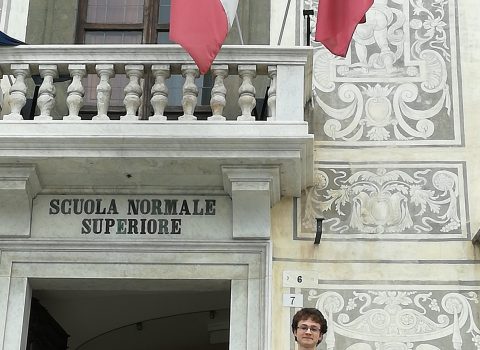One million servings donated with BringTheFood
The system, based on a computer application developed at Trento-based FBK, makes it possible for those having excess food to connect with those who need them, and avoid waste. Since the beginning of 2019, restaurants, catering companies, corporate and school cafeterias have allowed the collection and redistribution within 24 hours of fresh and cooked products to charitable organizations for a total of 150 tons of food
More than one million servings have been donated since the beginning of 2019 thanks to Trento-based Fondazione Bruno Kessler‘s BringTheFood project.
The system, based on a computer application developed by the FBK ICT4G (ICT for Good) Research Unit, allows those who have leftover food to connect with charities, so that the extra food prepared will not end up as waste at the end of the day but will help ensure meals for the needy.
In particular, BringTheFood makes the donation of leftover food of restaurants, catering services, company and school cafeterias instant by enabling the recovery and redistribution of fresh and cooked products within 24 hours. Food banks and charities, in turn, organize their collection rounds better, as they can always know who has something to donate, and can have the tax documentation and all the statistics at hand at all times.
Thanks to BringTheFood, for example, the Food Bank of Trentino – Alto Adige has doubled the amount of food collected from cafeterias and catering companies compared to before the system was introduced.
In addition to prepared food, unsold products of farmers can also be salvaged as, through BringTheFood, farmers can donate them to solidarity networks easily as the sorting of large quantities becomes simpler and all the documentation necessary to access tax deductions is automatically generated.
For example, ACLI Padova has been organizing the collection for the Rete Solida project since 2014 and, thanks to BringTheFood, has significantly reduced the time needed to sort over 20 ton donations.
“We are proud that a technology developed here is being used to make a difference and help those in need”, Adolfo Villafiorita, head of the ICT4G Research Unit (FBK) commented, “This successful result that has been achieved by the institutions we work with thanks also to the use of BringTheFood. It is a small but, we hope, significant contribution to the steady work of charitable organizations and volunteers operating in this sector and a demonstration of how technology can be put at the service of society, an activity in which we have been engaged for more than ten years”.
And, with an anti-waste culture that involves also the new generations in mind, the FBK ICT4G Unit has developed the Zero a Scuola project, in which a survey on waste was conducted in a number of school cafeterias in Trentino, integrated with meetings on ecological footprint and nutrition targeting middle school students.
Anyone interested in collaborating as a potential food donor, as a volunteer to help with collection and distribution, or those who wish to ask questions and requests about BringTheFood, can fill out the form here.
For more information: www.bringfood.org
Brief history of BringTheFood – Fondazione Bruno Kessler
Designed by researchers from the ICT4G (ICT for Good) unit led by Adolfo Villafiorita, the system also uses an app that allows restaurant managers, catering services, grocery stores and individuals to report leftover food and humanitarian organizations to request them in real time.
The early stages of the application were developed at RHOK Global (Random Hacks of Kindness), an initiative held in December 2011 in 32 cities around the world and organized in Trento by the researchers from the ICT4G Unit. This event was attended by programmers and volunteer experts and was aimed at designing open source helpful IT solutions. “BringTheFood” was later on presented at the ICTD2012 industry conference, in Atlanta, USA
In 2012, thanks to the social partnership with Fondazione Banco Alimentare Onlus, a testing stage was started in the Autonomous Province of Trento in collaboration with the Food Bank of Trentino Alto Adige Onlus, and then in the Municipality of Milan in collaboration with Ass. Banco Alimentare della Lombardia “Danilo Fossati” Onlus. In October 2013, “BringTheFood” was presented at the FAO headquarters in Rome as part of the initiatives of the Ministry of Foreign Affairs for the World Food Day.
At the end of 2014, further testing started with ACLI Padua, thanks to which new functions were added to enable chartities to manage also large donations from single producers. One year later, BringTheFood was selected among the projects worthy of representing Italian excellence at Expo 2015.
In 2019, the networks using BringTheFood salvaged 150 tons of food, i.e. 1,000,000 of 150g portions.

